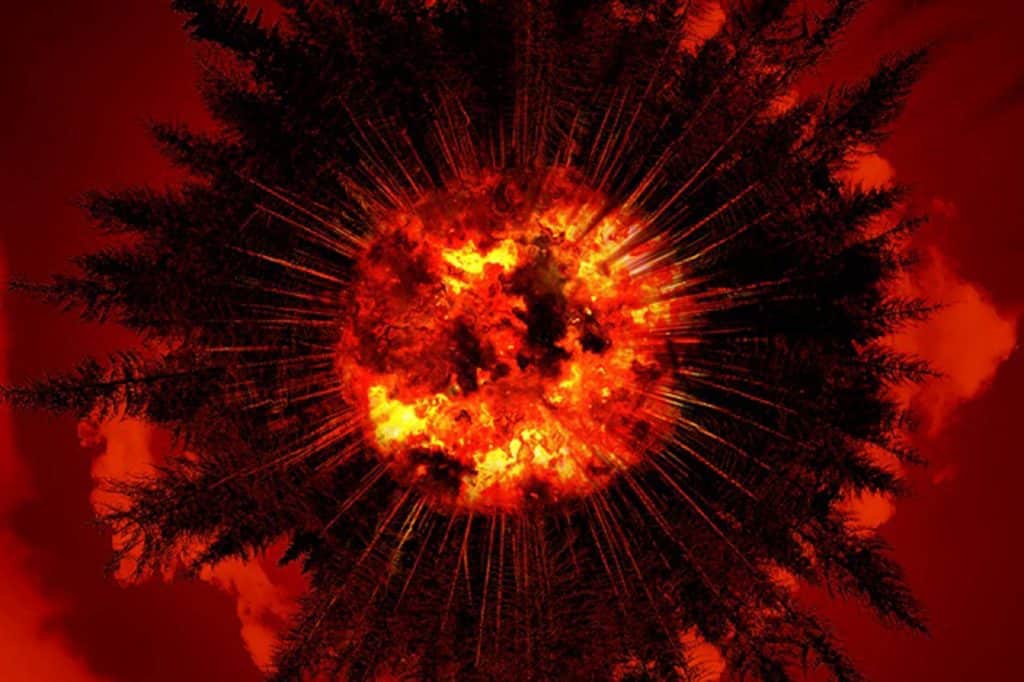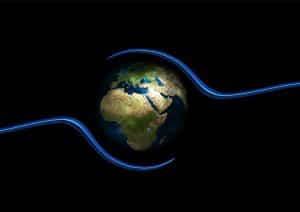Psychedelics and the Climate Crisis at Breaking Convention 2019

The largest psychedelic conference in Europe, Breaking Convention, convened last weekend for the fifth time. Over 1,500 researchers, shamans, psychonauts and journalists gathered to hear the latest advances in psychedelic culture and therapy – and the hot topic was the impending climate and ecological crisis that threatens to make our generation the final chapter in the history of humanity.
Alongside the usual crowd of big-name psychedelic figures like Amanda Fielding, Rick Doblin and David Nutt, were speakers with unrivalled expertise in ecology and revolution. Dr David Luke, co-founder of the Breaking Convention conference, emphasized that “The climate and ecological crisis is the most important issue that humanity is facing right now.” There was no question it was going to be the biggest talking point of the weekend.
Could Psychedelics Prevent Climate Collapse?
There was much hope in the potential overlap of psychedelics and ecological awareness. Science advisor for the Beckley Foundation, Dr Sam Gandy, presented the evidence that psychedelics could help change attitudes about the climate crisis. And shifting attitudes is a power we shouldn’t underestimate. As David Luke states, “The climate and ecological crisis is a matter of consciousness – our attitudes and behaviors.”
Gandy highlighted that people who felt an increased connection to nature were more likely to practice pro-environmental behavior. Psychedelics have been shown, in a number of studies, to boost the connection we can feel to nature – and are therefore likely to increase pro-environmental behavior. Gandy suggests that the perspective-expanding power of psychedelics can enable us to ‘zoom out’ of our lives and appreciate the entire ecosphere that we are a part of.
Author Jay Griffiths followed Gandy to provide a personal account of the ability of psychedelics to change our relationship with nature. She shared her story of a battle with depression that took her to the Amazon with anthropologist Jeremy Narby, where she experienced an ayahuasca ceremony for the first time. She describes ayahuasca sending here an explicit message: “Suicide is a fucking luxury – do your job.” She realized she had work to do.
Griffiths recounted further ayahuasca journeys, including an intense experience of shape-shifting into a jaguar, and stalking the “intellectual apartheid” of her old University libraries and halls, filled with an ancient fury. Psychedelics have given Griffiths a clear mission: to fight the climate and ecological crisis. “Silence, in this era, is a betrayal.”
Well-known British TV presenter and indigenous rights activist Bruce Parry shared his experiences with psychedelics. Parry spent six years in the Royal Marines, before working as a trek leader, and finally beginning a career in TV. He has filmed series about indigenous peoples in dozens of countries, including Peru and Brazil. He is captured on camera taking both iboga and ayahuasca.
Parry states that although the BBC intended to avoid promoting any plant medicines during his TV series, his personal opinion is different. For the first time in public, at Breaking Convention, Parry revealed that he has extensive experience with ayahuasca and other plant medicines, having drunk ayahuasca “100 times now.”
Although Parry says that he believes “There are lots of ways we can have an experience of unity consciousness,” psychedelic plant medicines have an advantage in that they are often taken within a natural context and bring us into a greater awareness of “the ecological realm.” To solve the climate and ecologic crisis, Parry suggests “We have to feel more deeply, we have to fall in love with nature.” And although there are many ways in which we can do this, he considers psychedelic plant medicines one very useful route to ecological awareness.
Dr Gail Bradbrook, co-founder of Extinction Rebellion, spoke about the need for revolution, and also touched on the wisdom of the shaman: “Indigenous cultures can remind us of the ways we are meant to take psychedelics.”
Political activism has long been Dr Bradbrook’s passion, but it was one particular experience with iboga that brought her the vision of Extinction Rebellion. After 25 years of “hard slog” – working on herself and developing her mission of activism – her question to iboga was about what to do next. “My prayers were about disobedience.” And she got an answer: “We don’t have time to wait for the science.” Bradbrook believes that now is the time to mobilize mass social disruption.
During the Breaking Convention press conference, at which both Dr Bradbrook and MAPS founder Rick Doblin were present, Doblin suggested that psychedelic medicines could be legalized in the US by 2035. In response, Bradbrook stated “That sounds like a joke to me. Society will have collapsed by then.” Many are taking heed of Bradbrook’s stark warning.
Walking Through the Door
Over the course of the conference, both speakers and audience alike revealed their hopes for psychedelics to change the direction of our anti-nature culture. But most were in agreement that the solution will be more complex and hard-fought than to just give psychedelics to more people. We all know how dependent the psychedelic experience can be on set and setting, and as psychedelic researcher Dr Rosalind Watts stated, “High doses of psychedelics don’t necessarily lead to transformation – and sometimes, they don’t even lead to psychedelic effects.”
People can be especially good at resisting the transformative effects of psychedelics, and may come out of the experience without any improvement in their connection to nature. As Bruce Parry eloquently pointed out, “[Plant medicines] don’t cure you of anything – they just open the door.” It’s still up to us to walk through.
Exactly how psychedelics could influence the potential salvation of humanity remains to be seen. But the mood at Breaking Convention was one of hope – and we should be prepared to do everything in our power to reverse the vast damage that we have wrought on our home.


